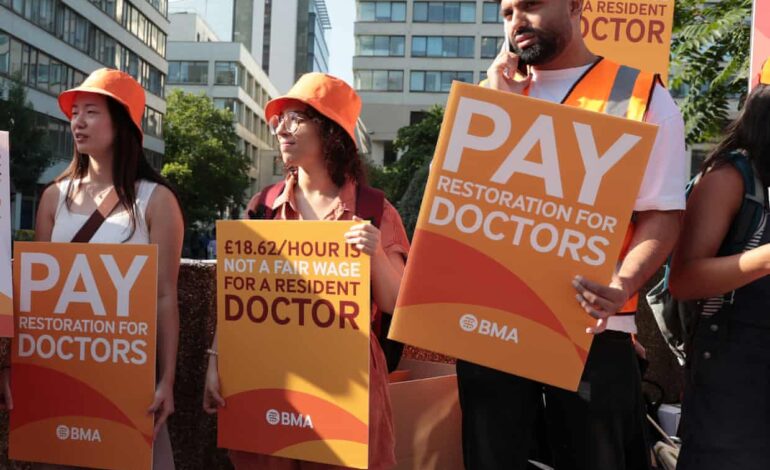Thousands of Resident Doctors Strike Over Pay Dispute in England

Thousands of resident doctors across England have commenced a five-day strike in a dispute over pay. This action, which began at 7 AM on September 29, 2023, marks the 13th walkout since March 2023. Health leaders have warned that the ongoing strikes may force the NHS to reduce frontline staff and limit appointments and operations.
Healthcare organizations, including the NHS Confederation and NHS Providers, have expressed concern that the continued industrial action is exacerbating financial pressures on an already strained system. The last strike in July 2023 was estimated to have cost the NHS approximately £300 million. With the current strikes, patients face longer waits for care, and many may struggle to maintain their employment without the necessary treatment.
Impact on Patient Care and NHS Operations
The strikes have significantly affected healthcare delivery, with the previous walkout resulting in over 54,000 procedures and appointments being cancelled or rescheduled, despite the NHS managing to uphold 93% of planned activity. Matthew Taylor, Chief Executive of the NHS Confederation, emphasized the disruption’s toll on patients, stating, “There is no doubt that patients will bear the brunt of this disruption, with tens of thousands of tests, appointments and operations likely to be delayed or cancelled.”
As winter approaches, the NHS faces increased challenges, particularly with flu season already beginning. Taylor warned that the strikes could hinder the NHS’s ability to recover and implement essential long-term reforms.
The latest figures released indicate a slight decrease in the waiting list for care in September 2023, following three consecutive months of increases. Nevertheless, the ongoing industrial action threatens to reverse any progress made in managing waiting times.
Stalemate Over Pay Increases
The health secretary, Wes Streeting, has maintained that resident doctors have already received an almost 30% pay rise over the last three years. In contrast, the British Medical Association (BMA) argues that doctors require a 26% pay increase to restore their earnings in real terms, taking inflation into account.
The BMA has stated that doctors should not be compelled to return to work during the strike, particularly in situations where patient safety is at risk. The union has rejected any “derogations,” which would require doctors to abandon the strike to cover NHS work unless trust management has cancelled planned activities and incentivized other medical staff to assume responsibilities.
NHS England is advising patients to continue seeking care and attending scheduled appointments unless they receive alternative instructions. Emergency services remain operational, with patients needing urgent assistance encouraged to use the 999 service or attend Accident & Emergency departments as usual. The NHS 111 service is also available along with standard general practitioner (GP) services.
The ongoing pay dispute highlights the critical challenges facing the NHS as it strives to balance staff needs with the demands of patient care, all amidst financial constraints and rising operational pressures.






